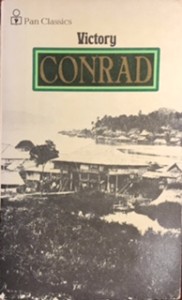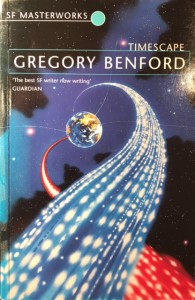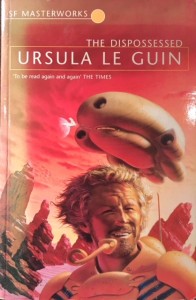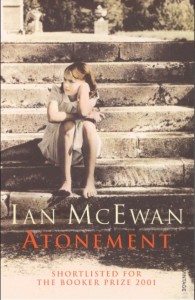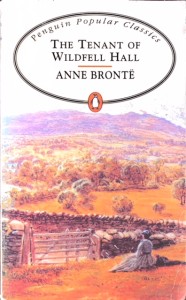At the risk of straying onto Mark’s grounds of literary and art criticism, I aim the entry at an attempt to answer the above critical question. Being an artistic part-timer, I will have to draw from several genres, from modern Fantasy through ‘hard’ Science Fiction, to modern English Literature and the ‘Classics’.
I am far from convinced that the way school students were taught when I was at school was a good one to learn how to love the written word (although I admit that this was back when the dinosaurs were eggs). Most children have the attention of a thyrotoxic fruit-fly, and to expect them to read the beautiful descriptive passages of Joseph Conrad is not sensible. Yet by the time I was in my early twenties, “Victory” was my favourite book.
So it is a story which matters? A story or a theme is essential, and without this no reader is likely to persist for long. Children certainly demand this, and there is nothing wrong with it as a criterion. On the other hand, to pander to a short attention-span is a common failing in my eyes – writing story books (I won’t grace them with the title ‘novels’) in chapters that barely get beyond a page is awful. I think of it as being ‘written for television’. No author who cannot retain your attention over a reasonable number of pages is worth considering.
An attribute which to me is essential is that the book be internally consistent. No ‘loose ends’, no miraculous twists in the plot, no unlikely-to-impossible coincidences. On the positive side, an author can refer back to previous events in a book to demonstrate the progress of a narrative, and the complicated nature of real events – nothing is simple. An example is in The Bartimaeus Trilogy by Jonathan Stroud, whose invented world has references which hold true through three books and events in one book which carry importance in another. Another good 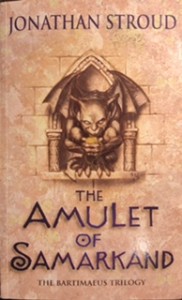 example of this quality is in a book by Douglas Adams:”Dirk Gently’s Holistic Detective Agency” where in an early passage of the book the hero has to get past a sofa stuck on the bend of a staircase, and part of the recurrent scenes involving the sofa is that the hero later invents a program on his computer working in 3-dimensions which conclusively shows not only that the sofa cannot be moved onwards up the stairs, but it cannot even have been manoeuvred there in the first place! How this is resolved is a running joke through the whole book. The Bartimaeus Trilogy illustrates also a quirk which I find very attractive in a novel – an unexpected ending. This has nothing to do with the quality of writing of course. Nevertheless an ending where the ‘hero’ dies is unusual (“Ptolemy’s Gate”). “Atonement” by Ian McEwan is another example of an unexpected ending which does not create a fracture in the narrative or discontinuity, but instead makes for a logical and thought-provoking, unheralded turn of events.
example of this quality is in a book by Douglas Adams:”Dirk Gently’s Holistic Detective Agency” where in an early passage of the book the hero has to get past a sofa stuck on the bend of a staircase, and part of the recurrent scenes involving the sofa is that the hero later invents a program on his computer working in 3-dimensions which conclusively shows not only that the sofa cannot be moved onwards up the stairs, but it cannot even have been manoeuvred there in the first place! How this is resolved is a running joke through the whole book. The Bartimaeus Trilogy illustrates also a quirk which I find very attractive in a novel – an unexpected ending. This has nothing to do with the quality of writing of course. Nevertheless an ending where the ‘hero’ dies is unusual (“Ptolemy’s Gate”). “Atonement” by Ian McEwan is another example of an unexpected ending which does not create a fracture in the narrative or discontinuity, but instead makes for a logical and thought-provoking, unheralded turn of events.
A good theme or story is not enough: many authors write one terrific novel, but nothing as good ever follows (JD Salinger, or Harper Lee, are examples). In my mind these great books are not by truly great authors. I can think of many such. One of my all-time favourite books is the science fiction novel “Timescape”, by author Gregory Benford. I have read many other books written by him, but none have come close.
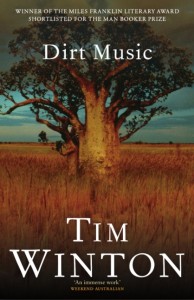 Is the fault mine – I might like one book from many by an author, and am disappointed by the others? For instance I love “Dirt Music” by Tim Winton. The atmospheric description of life on the edge of society in modern West Australia is so vividly described, it must somehow be like that. Yet his critically-acclaimed “Cloudstreet” I find tedious and banal. Could it be that the first novel read from any author of real quality is likely to be one which a reader treasures most? If it is purely the quality of the writing, that might be true.
Is the fault mine – I might like one book from many by an author, and am disappointed by the others? For instance I love “Dirt Music” by Tim Winton. The atmospheric description of life on the edge of society in modern West Australia is so vividly described, it must somehow be like that. Yet his critically-acclaimed “Cloudstreet” I find tedious and banal. Could it be that the first novel read from any author of real quality is likely to be one which a reader treasures most? If it is purely the quality of the writing, that might be true.
Yet of Jane Austen I find this untrue. 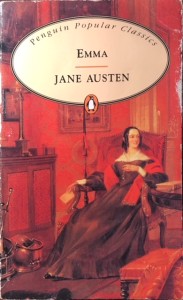 I was guided by my mother to read “Northanger Abbey” first (“it’s a parody, David”), and although it led me on to others, it is certainly not my favourite. In this case I find one of the ones I reached last to be my favourite now – “Emma”. The characters in this book are wonderful, overtly flawed, and eminently believable even in the modern era. By comparison the much-lauded “Pride and Prejudice” is in another, far-way, age of the world. I would happily read any of Jane Austen’s novels again: a true reflection of quality. In the modern era Ursula LeGuin has much of the same quality, with superbly crafted stories, well thought-through themes, and beautiful writing.
I was guided by my mother to read “Northanger Abbey” first (“it’s a parody, David”), and although it led me on to others, it is certainly not my favourite. In this case I find one of the ones I reached last to be my favourite now – “Emma”. The characters in this book are wonderful, overtly flawed, and eminently believable even in the modern era. By comparison the much-lauded “Pride and Prejudice” is in another, far-way, age of the world. I would happily read any of Jane Austen’s novels again: a true reflection of quality. In the modern era Ursula LeGuin has much of the same quality, with superbly crafted stories, well thought-through themes, and beautiful writing.
Some other authors whose unlinked books share a higher order of writing are Hardy, Conrad, Eliot. Slightly down the scale in my estimation are those who write a series of books with a central character, often found in detective series: Raymond Chandler, Margery Allingham, Dorothy Sayers. I have enjoyed them all, but an author who can create several books with well-drawn different characters in them all surely has a superior skill? Books sharing a common world or scene is a different quality – Tim Winton’s novels are often linked in clever ways, if you can find the obscure connection. Ursula LeGuin’s “hard” science fiction all takes place in the same universe, with common inventions in the laws of physics to suit the stories. However her novels are often set millennia apart.
So a truly great author must be a writer of several books which are well-written (no split infinitives), with a good (believable?) story to tell about interesting characters. It must be internally consistent, and not dependent on unlikely coincidences. Although I love to read a series of books (think: the Earthsea Trilogy) I have greater regard for the author who invents new characters for me to enjoy with each new book (think: Hardy, or Eliot)
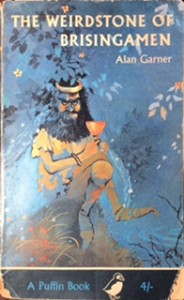 If I could only ever read one book again, what would it be? This is a hard question, but I think it would probably be “hard” science fiction, for the possibilities that it offers an author to create a story line which asks a question, without being constrained by reality. However fantasy has much of the necessary escapism also. Alan Garner’s “The Weirdstone of Brisingamen” is haunting, beautiful, and rooted in the north of England. It contains some of the most memorable scenes from any of the books which I have read. Other books of his can be read again and again: perhaps this is the mark of true genius.
If I could only ever read one book again, what would it be? This is a hard question, but I think it would probably be “hard” science fiction, for the possibilities that it offers an author to create a story line which asks a question, without being constrained by reality. However fantasy has much of the necessary escapism also. Alan Garner’s “The Weirdstone of Brisingamen” is haunting, beautiful, and rooted in the north of England. It contains some of the most memorable scenes from any of the books which I have read. Other books of his can be read again and again: perhaps this is the mark of true genius.
In reality, what makes an author truly great is subjective. Others eulogise Dickens. I think he is awful. Some love Agatha Christie – I think she is trivial, superficial and narcissistic – “look at how clever I’ve been”. When I came to find the books whose covers I wanted to take pictures of, for this article, some important ones were missing. I lend my favourite books to people, but what sort of a person doesn’t return a book, I ask you? About year or more ago, Nick asked me for suggestions in three of the categories at the start of this essay. I gave him “Timescape”, “The Dispossessed” by Ursula K LeGuin and “The Tenant of Wildfell Hall” by Anne Bronte. Also missing were “Atonement” by Ian McEwen and “Dirt Music” by Tim Winton. So if you have them, and read this, please return them: they are amongst my treasured, favourite, books.
I will stop there.
Perhaps John or Mark might like to add their thoughts?

